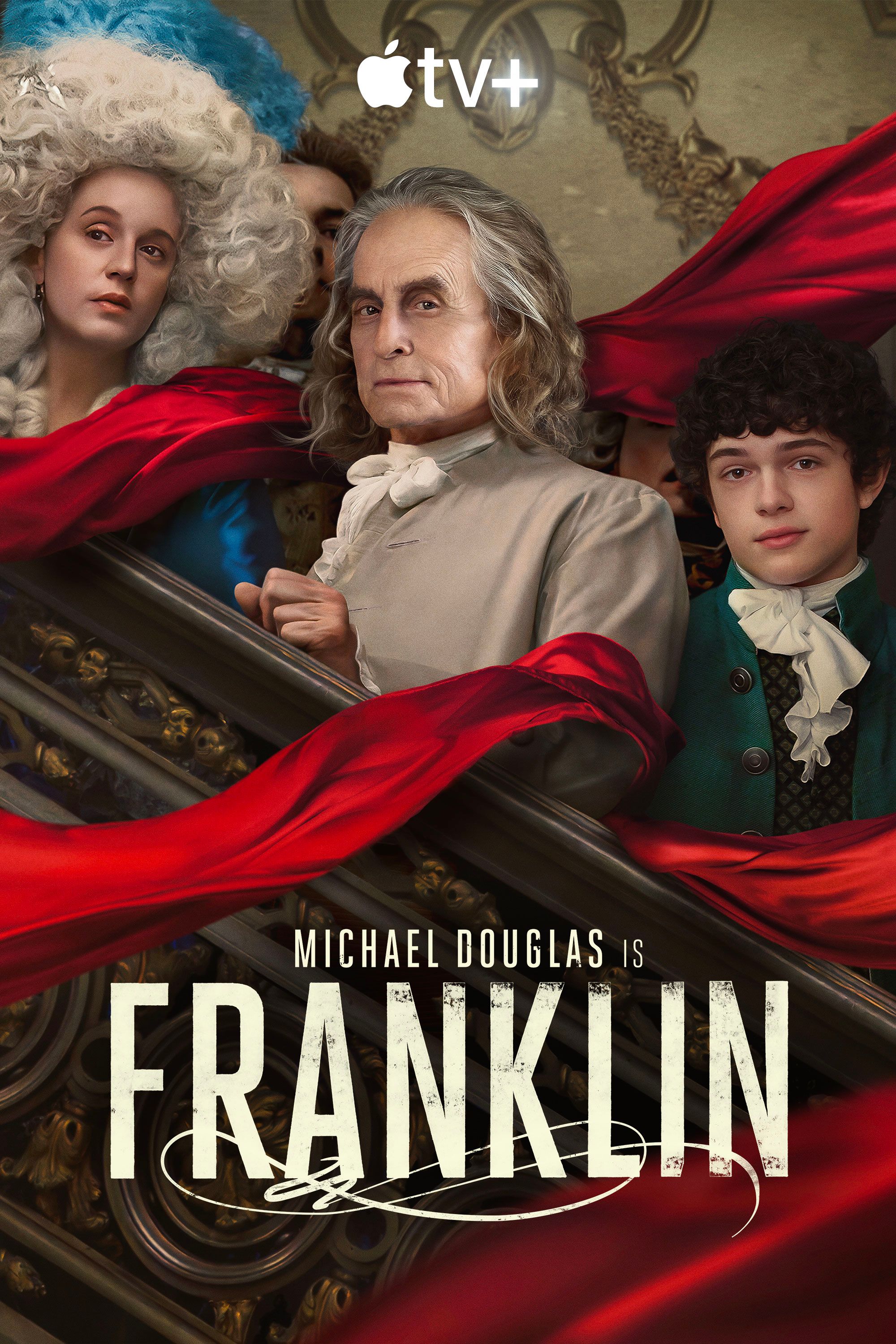Editor’s note: The below contains spoilers for Apple TV+’s Franklin.
The Big Picture
-
Franklin
delves into Benjamin Franklin’s flaws, portraying an imperfect diplomat with personal troubles and vulnerabilities. - The series shows Franklin out of his element in France, struggling with social errors and cultural differences.
- Despite Franklin’s legendary status, the show explores his vulnerable side, depicting a man who is fallible and imperfect.
Michael Douglas is proving that he hasn’t lost a step with his bold and brilliant portrayal of one of the key Founding Fathers of the United States, Benjamin Franklin, in Apple TV+’s Franklin. As the streamer continues to kill it on period piece development and production, the miniseries follows the iconic statesman, publisher, and inventor seeking an alliance with France as America vies for independence from Great Britain.
Douglas’ performance shows aspects of the man we read about in our history books, such as his rapier-like wit and skillful negotiation style — but more interesting is the picture that writers Kirk Ellis and Howard Korder are painting relative to some of the brilliant man’s shortcomings. No man is perfect, and in Episode 3, “Pride and Gout,” the audience begins to see some of the cracks in his image. Franklin isn’t afraid to look at the things that the noted diplomat had difficulty with. From having to answer tough questions about his son being imprisoned for treason to not always carrying himself in a distinguished manner, there is a lot to dissect in Franklin’s flaws, which are often rarely written about or discussed.

Franklin (2024)
Explores the story of one of the greatest gambles of Franklin’s career. At age 70, Franklin outmaneuvered British spies and French informers while engineering the Franco-American alliance of 1778.
- Release Date
- April 12, 2024
- Seasons
- 1
- Creator(s)
- Kirk Ellis
Benjamin Franklin Is Best Known for His Achievements
If you ask anyone on the street about what they most associate Benjamin Franklin with today, many will reference something that paints the diplomat in the best light. Franklin may be most recognized today as the face of the $100 bill. Just scroll through a handful of TikTok videos, and you’ll see his face on hundred-dollar bills flayed like a deck of cards. Some 234 years after his death, Franklin is still associated with wealth and prosperity and is the only non-president to appear on American currency. Others may point to his amazing achievements in advancing the power of electricity with his key on a kite string experiment, or his invention of bifocal glasses. Additionally, Franklin’s publishing achievements are remarkable, and frequently referenced in the show’s first several episodes.
There is no shortage of compliments to toss around when discussing one of the signers of the Declaration of Independence. Having said that, there is another side of the man that Franklin is beginning to explore in earnest in Episode 3, as Franklin’s grandson keeps him in check, and you can see that the apple hasn’t fallen very far from the tree. As much as Franklin may not want to hear the critique, he knows that his grandson is exhibiting the same iron will and strong opinions that he himself has become renowned for.
Benjamin Franklin Also Had Deep Personal Troubles
The dynamic between Franklin and his grandson William Temple Franklin (Noah Jupe) is one of the best parts of the show. Jupe not only holds his own against Douglas, but his portrayal of the young Temple is powerful. Episode 3, in particular, finds Temple, after a night of drunken debauchery, gathering some liquid courage and telling Franklin what he doesn’t like about him. He faults his grandfather for not doing more to have his own son William, Temple’s father, who had been appointed the Governor of New Jersey by the British before the revolt, released from prison for being a Loyalist. He even admonishes the Founding Father for lacking a relationship with his own wife and daughter.
The elderly diplomat is taken aback as Temple disparages his sometimes elitist behavior, as well as Machiavellian mind games and tactics. It is a moment where the viewer is reminded that Franklin is occasionally arrogant and dismissive of the thoughts and wishes of people he deems less intelligent than he is. The next day, Franklin seeks an apology from Temple, but his grandson refuses. He meant what he said, and Franklin must re-evaluate his approach and manner moving forward.
Benjamin Franklin Is a “Fish Out of Water” in France
Benjamin Franklin doesn’t necessarily need his grandson, Temple, to point out what he wishes he could change about himself. In France, he is often out of his element and struggles to deal with the pretentiousness and pageantry of a sex-fueled aristocracy. Director Tim Van Patten does a commendable job catching close-ups of the titular character with great anguish on his face as he tries to fit into a culture that is foreign to him. Along with their powdered faces and styled wigs, the practices of the French of the period are difficult to navigate, even for a man as erudite as Franklin. Episode 3 highlights a particularly embarrassing gaffe as the esteemed guest misspeaks in front of an entire auditorium packed with French aristocrats. It’s a Freudian slip of the tongue dealing with gender preference that is lost on the American as he tries to appease the right people and gain their allegiance to the revolution.
All of this is compounded by the debilitating case of gout that forces him to walk with a cane, which, alongside his social errors, creates the portrait of a surprisingly vulnerable man. Thus far, one of Franklin’s few confidants has been his neighbor, Anne Louise Brillon de Jouy (Ludivine Sagnier), an accomplished musician and composer. After the two cross paths at a decadent gala, she tells him to ensure he is “noticed,” to which a visibly uncomfortable Franklin replies, “Guide me to the next circle of Hell, my Virgil.” This is the side of the political titan that we have never seen adapted before.
In the final scenes of “Pride and Gout,” Ben and Temple are seated at the end of a long dinner table, being largely ignored. When one of the Frenchmen states aloud that the Americans have lost Philadelphia to the British, Franklin stands and, without any direct knowledge or proof, states that the aristocrat has it backward, telling him the Americans have seized Philadelphia from the English. He says it so forcefully and assuredly that it draws a smattering of applause. In the next scene, he is caught urinating in public on a nearby wall. It is an ideal encapsulation of the legend taught in history class juxtaposed alongside the real man who was just as fallible and imperfect as anyone else — but someone who was ultimately put in an extraordinary position at a vital time during the birth of the United States.
Franklin is available to stream on Apple TV+ in the U.S.

